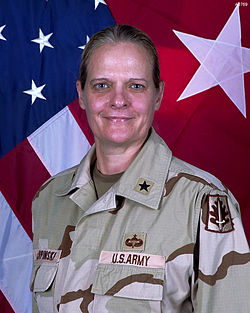 The United Nations is probing a complaint that Bradley Manning, the detained Army private suspected of giving classified documents to WikiLeaks has been mistreated in custody. And WikiLeaks chief Julian Assange called Manning "a political prisoner" during an interview on MSNBC.
The United Nations is probing a complaint that Bradley Manning, the detained Army private suspected of giving classified documents to WikiLeaks has been mistreated in custody. And WikiLeaks chief Julian Assange called Manning "a political prisoner" during an interview on MSNBC.
As The Huffington Post reported last week, Manning's supporters went public with their concerns about the harsh conditions of his imprisonment aboard a floating brig in Quantico, Va. -- he has no access to exercise or even a pillow and bedsheets during his 23 hours of solitary confinement a day -- after their complaints to the military over several months went unheeded.
UN probes Manning's jail treatment
Obama signs DADT repeal before big, emotional crowd
 President Obama signed the landmark repeal of the military's "don't ask, don't tell" policy Wednesday morning, handing a major victory to advocates of gay rights and fulfilling a campaign promise to do away with a practice that he has called discriminatory.
President Obama signed the landmark repeal of the military's "don't ask, don't tell" policy Wednesday morning, handing a major victory to advocates of gay rights and fulfilling a campaign promise to do away with a practice that he has called discriminatory.
Casting the repeal in terms of past civil rights struggles, Obama said he was proud to sign a law that "will strengthen our national security and uphold the ideals that our fighting men and women risk their lives to defend."
Nearly 1 in 4 fails US military exam
 Nearly one-fourth of the students who try to join the U.S. Army fail its entrance exam, painting a grim picture of an education system that produces graduates who can't answer basic math, science and reading questions, according to a new study released Tuesday.
Nearly one-fourth of the students who try to join the U.S. Army fail its entrance exam, painting a grim picture of an education system that produces graduates who can't answer basic math, science and reading questions, according to a new study released Tuesday.
The report by The Education Trust bolsters a growing worry among military and education leaders that the pool of young people qualified for military service will grow too small.
Report raises doubts about Obama missile defense plan
 The missile defense system that President
The missile defense system that President
The report raises questions about legislation that would strengthen the U.S. commitment to the deployment plan that the White House was negotiating in return for Republican votes it needed for Senate approval of a new U.S.-Russia nuclear arms reduction treaty.
Officer at center of Abu Ghraib scandal vows to clear name
 Janis Karpinski believes one day, a call will come from Washington, D.C., and a voice will tell her she has been cleared of the wrongdoing that thrust her into the national spotlight. "So then they'll be, of course, an outpouring of media requests," Karpinski said. "Maybe I'll be selective. Maybe Olbermann, maybe O'Reilly."
Janis Karpinski believes one day, a call will come from Washington, D.C., and a voice will tell her she has been cleared of the wrongdoing that thrust her into the national spotlight. "So then they'll be, of course, an outpouring of media requests," Karpinski said. "Maybe I'll be selective. Maybe Olbermann, maybe O'Reilly."
The Hilton Head Island resident has even imagined the title of her next book: "Cleared," or perhaps "Vindicated." But so far, the exoneration she so deeply craves -- and freedom from the Abu Ghraib prison scandal -- eludes her.
Sex Assaults, Harassment Up at US Military Academies
 A congressionally mandated study concludes that sexual assault and harassment climbed at the service academies in 2009-2010, but the Pentagon questions whether the latest figures show problems are increasing or merely reflect a greater willingness by victims to report incidents.
A congressionally mandated study concludes that sexual assault and harassment climbed at the service academies in 2009-2010, but the Pentagon questions whether the latest figures show problems are increasing or merely reflect a greater willingness by victims to report incidents.
According to the Annual Report on Sexual Harassment and Violence at the United States Military Service Academies there were 41 sexual assaults on cadets or midshipmen, a 64 percent increase over the 2008-2009 period.
Army 'birther' changes course, says he'd deploy
 An Army doctor who disobeyed orders to deploy to Afghanistan because he questioned President Barack Obama's eligibility to be commander in chief told a jury Wednesday he was wrong to do so and would now deploy if he could.
An Army doctor who disobeyed orders to deploy to Afghanistan because he questioned President Barack Obama's eligibility to be commander in chief told a jury Wednesday he was wrong to do so and would now deploy if he could.
Lt. Col. Terrence Lakin was speaking during a court martial hearing Wednesday at Fort Meade. In videos posted on YouTube earlier this year, Lakin aligned himself with the so-called "birther" movement, which questions whether Obama is a natural-born citizen as the U.S. Constitution requires for presidents. Lakin had said he would "gladly deploy" if Obama's original birth certificate were released and proved authentic.
More Articles...
Page 58 of 99

 Military Glance
Military Glance






























